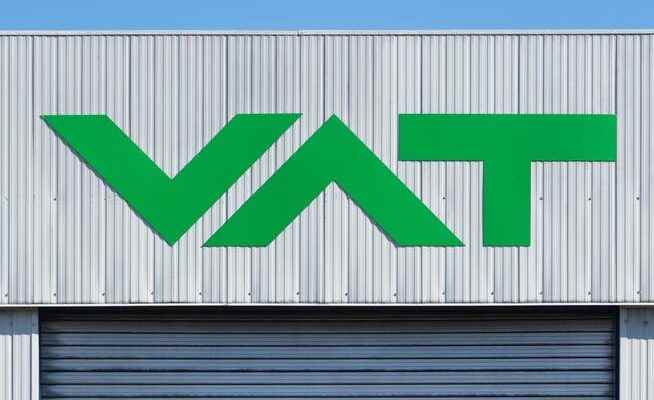VAT’s vacuum valves are now ubiquitous in factories in the semiconductor industry. The company has hardly any competition in its lucrative niche. Sales are expected to reach around 2 billion francs by 2027.
VAT is confident of increasing market share in supplying vacuum valves to semiconductor industry.
In view of the growth plans pursued by VAT, a supplier to the semiconductor industry in Eastern Switzerland, one could get dizzy. The company from Haag in the St. Gallen Rhine Valley has set itself the goal of doubling its turnover again within just five years. Group revenue, which is likely to exceed 1 billion francs for the first time this year, is to be increased to 1.8 to 2.2 billion francs by 2027.
Enjoy big numbers
“We like big numbers,” said CEO Mike Allison in an interview on the sidelines of the investor conference that the company, which specializes in vacuum valves, held in Zurich on Friday. At the same time, he emphasized the fact that VAT is not only inclined towards large numbers, but also achieves them.
Two years ago, when investors were invited to a capital market day for the first time since the company went public in 2016, management had forecast sales of CHF 1.1 billion by 2025, starting from almost CHF 700 million. Due to the strong growth that started immediately afterwards, this target was raised to CHF 1.5 billion at the balance sheet media conference last March.
Now it should even be around 2 billion francs by 2027. This implies an annual sales increase in the low double-digit percentage range.
Expanding so rapidly year after year is a challenge for any business. Allison admitted to the assembled investors that she asked a lot of VAT’s workforce. “And we ask her to make another big effort.”
Malaysia is becoming more important
Despite the willingness of the existing team to perform, the planned expansion will not be possible without additional employees. Around 3,000 people currently work at VAT, around half of them still at the headquarters in Haag. By 2027, there should be a good 5,000 across the group, Allison said.
The Swiss plant currently accounts for almost four fifths of the production capacity. By 2027, it will be divided roughly equally between Hague and Malaysia, where plans are in place to build a second factory to supplement the existing one.
VAT’s vacuum valves are used in production equipment that specialist suppliers such as Lam and Applied Materials build for the semiconductor industry. They make it possible to meet high quality and cleanliness requirements in the systems under clean room conditions. With an estimated three-quarters of its equipment being used in Asia, it is only logical for Allison to increase its manufacturing focus on the Far East.
Gaining additional market share
The 60-year-old CEO, who comes from Scotland and can now look back on a 37-year career in the semiconductor industry, is counting on the fact that the demand for silicon chips will continue to increase sharply in the course of digitization. The demand is so great that there are reports that silicon chips have recently replaced oil as the world’s most traded bulk commodity.
VAT is confident of increasing the already dominant market share of 75 percent in the supply of the semiconductor industry with vacuum valves by a further 10 percentage points by 2027. Above all, the company relies on its ability to be considered as a partner for cooperation in the development of new systems. The pressure to innovate in the industry is high because the main customers, primarily from the electronics industry, are increasingly demanding more powerful chips.
First comes the weakening
However, VAT will not be able to escape the weakening of investment activity in the chip industry, which has been apparent for several months. Allison pointed to industry estimates that expect a 20 to 25 percent decline in 2023. “It’s going to be a difficult year,” he said.
The current year has already been disappointing for the company’s shareholders. Investors reacted benevolently to the new business goals on Friday, and the listing rose by 1.59 percent to 269 francs. But it’s down nearly 44 percent from the November 2021 peak that marked the stocks after a three-year soar.
Allison, meanwhile, consoles himself with the fact that he’s experienced more than ten cycles since he entered the industry. “After every downturn, it’s gone up again.” And what does the VAT boss think of the US government’s decision to ban China from importing the most powerful systems for chip production? “It’s an ugly situation. We, as a supplier, are also starting to feel it.»
